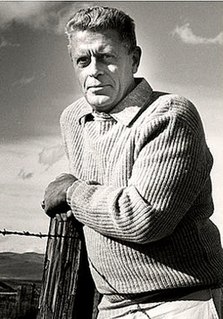A Quote by Hermann Hesse
Any attempt to replace a personal conscience by a collective conscience does violence to the individual and is the first step toward totalitarianism.
Related Quotes
Meditation is the art of awareness. And once you are aware, out of your awareness your actions will arise - not out of conscience. Conscience is cultivated by others, by the vested interests, by the establishment. Consciousness is yours. It is individual, it is not collective. Conscience is part of the mob psychology. Consciousness gives you dignity because it gives you individuality. It gives you rebellion, it makes you capable of saying yes or no of your own accord. There is no foreign agency manipulating you in the name of religion, morality, etcetera.
True law, the code of justice, the essence of our sensations of right and wrong, is the conscience of society. It has taken thousands of years to develop, and it is the greatest, the most distinguishing quality which has developed with mankind ... If we can touch God at all, where do we touch him save in the conscience? And what is the conscience of any man save his little fragment of the conscience of all men in all time?
This solidarity can grow only in inverse ratio to personality... Solidarity which comes from likenesses is at its maximum when the collective conscience completely envelops our whole conscience and coincides in all points with it... when this solidarity exercises its force, our personality vanishes, as our definition permits us to say, for we are no longer ourselves, but the collective life.
Another doctrine repugnant to Civill Society, is that whatsoever a man does against his Conscience, is Sinne ; and it dependeth on the presumption of making himself judge of Good and Evill. For a man's Conscience and his Judgement are the same thing, and as the Judgement, so also the Conscience may be erroneous.
The real transgression occurs when religion wants government to tell citizens how to live uniquely personal parts of their lives. The failure of Prohibition proves the futility of such an attempt when a majority or even a substantial minority happens to disagree. Some questions may be inherently individual ones, or people may be sharply divided about whether they are. In such cases, like Prohibition and abortion, the proper role of religion is to appeal to the conscience of the individual, not the coercive power of the state.






































